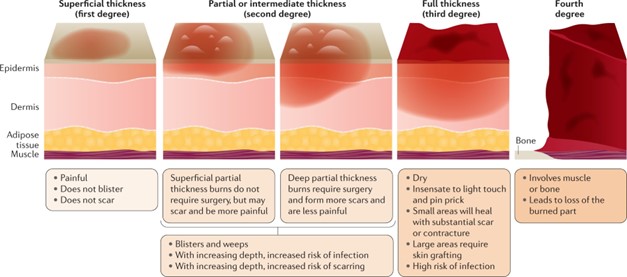A 3-year-old boy was successfully toilet trained prior to his admission to the hospital for injuries sustained from a fall. His parents are very concerned that the child has regressed in his toileting behaviors. Which information should the nurse provide to the parents?
Diapering will be provided since hospitalization is stressful to preschoolers.
A retraining program will need to be initiated when the child returns home.
A potty chair should be brought from home so he can maintain his toileting skills.
Children usually resume their toileting behaviors when they leave the hospital.
The Correct Answer is D
The correct answer is choice d. Children usually resume their toileting behaviors when they leave the hospital.
Choice A rationale:
While it is true that hospitalization can be stressful for preschoolers, providing diapers may not be necessary. Regression in toileting is often temporary and related to the stress of the hospital environment.
Choice B rationale:
Initiating a retraining program immediately after returning home may not be necessary. Most children will naturally resume their previous toileting behaviors once they are back in a familiar and less stressful environment.
Choice C rationale:
Bringing a potty chair from home can be helpful in some cases, but it is not always practical or necessary. The child is likely to resume normal toileting behaviors once they are back in their usual environment.
Choice D rationale:
This is the correct answer because children often regress in their toileting behaviors due to the stress and unfamiliarity of the hospital environment. Once they return home, they typically resume their previous toileting habits.
Nursing Test Bank
Naxlex Comprehensive Predictor Exams
Related Questions
Correct Answer is ["B","D","E"]
Explanation
These findings suggest potential complications and compromise to the client's circulation and nerve function, which require immediate attention.
Changes in the quality of peripheral pulses indicate alterations in blood flow and may suggest vascular compromise or decreased perfusion to the affected areas. This finding requires immediate intervention to prevent further damage and ensure adequate blood supply to the extremities.
Loss of sensation to the left lower extremity can be indicative of nerve injury or impaired peripheral nerve function. It is important to assess for nerve damage and address it promptly to prevent complications and maximize the client's recovery.
Complaints of increased pain and pressure are concerning because they may indicate the development of compartment syndrome, a serious complication in which pressure within the muscles and tissues builds up to dangerous levels. Prompt intervention is necessary to relieve the pressure and prevent tissue damage.
While sloughing tissue around wound edges and weeping serosanguineous fluid from wounds are important assessment findings in the context of burn care, they do not require immediate intervention compared to the findings mentioned above. These findings should still be addressed and managed appropriately, but they are not considered immediate emergencies.

Correct Answer is B
Explanation
A functional assessment is an evaluation of an individual's ability to perform activities of daily living (ADLs), which includes tasks such as bathing, dressing, toileting, eating, and mobility. Falls are a common and significant issue among older adults and are a leading cause of injury and hospitalization. Therefore, it is important to assess the client's risk of falling and inquire about any recent falls to develop an appropriate plan of care to prevent falls.
Encouraging the client to lie as still as possible during the assessment is not appropriate as it may not provide an accurate evaluation of the client's ability to perform ADLs.
Additionally, it is important to assess the client's functional status in a way that is safe and comfortable for them.
Assisting the client with values clarification about end-of-life care options is not appropriate during a functional assessment as it is not directly related to the client's ability to perform ADLs.
Asking the client how often episodes of sundowning are experienced is not appropriate during a functional assessment as sundowning is a symptom of dementia and is not directly related to the client's ability to perform ADLs.
Whether you are a student looking to ace your exams or a practicing nurse seeking to enhance your expertise , our nursing education contents will empower you with the confidence and competence to make a difference in the lives of patients and become a respected leader in the healthcare field.
Visit Naxlex, invest in your future and unlock endless possibilities with our unparalleled nursing education contents today
Report Wrong Answer on the Current Question
Do you disagree with the answer? If yes, what is your expected answer? Explain.
Kindly be descriptive with the issue you are facing.
